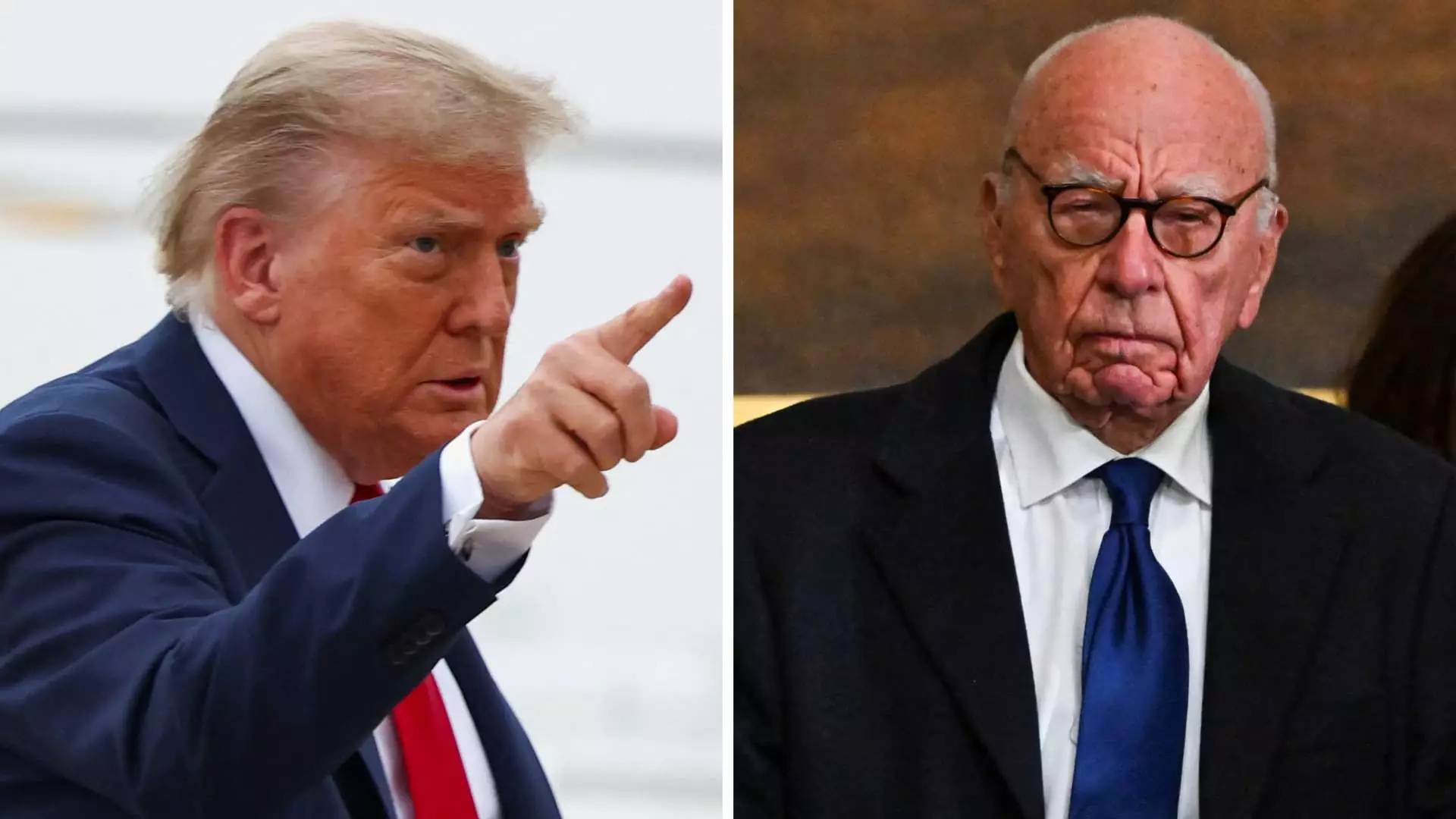The recent arrangement between media titan Rupert Murdoch and former President Donald Trump exposes the unsettling realpolitik that underpins the American political landscape today. Murdoch’s willingness to provide health updates—an intensely personal matter—just to delay his deposition in a high-stakes legal battle underscores the depth of influence wielded by figures who sit at the intersection of media, wealth, and power. This unusual development is not merely a courtroom procedural—it’s a stark illustration of how behind-the-scenes negotiations and personal allegiances shape public narratives and legal outcomes.
Murdoch’s age and alleged health issues are leveraged here as strategic pawns. The fact that a 94-year-old mogul must disclose his health status to the very figure whose lawsuit could threaten his media empire highlights the fragile veneer of objectivity in these elite interactions. It’s less about health and more about controlling the optics, controlling the narrative, and protecting an influential figure from potential legal repercussions. For all the talk of transparency in the judiciary, this case reveals just how much discretion and manipulation occur when high-profile figures seek to shield themselves from accountability.
Furthermore, the stipulation that Murdoch provide regular health updates and a mechanism for urgent notifications signals an attempt to embed ongoing influence over the narrative. It elevates health status into a matter of public and legal importance, subtly perpetuating Murdoch’s myth of frailty while simultaneously maintaining control over his image and involvement. The underlying message: Murdoch’s power isn’t just wielded through financial or media dominance but also through the strategic management of perception. This scenario demonstrates how the elite blur the lines between personal vulnerability and strategic opacity, subtly shaping the legal and political landscape to serve their interests.
Media as a Political Weapon: An Enduring Partnership with Power
For decades, Murdoch’s media empire has cemented its role as a loyal battalion supporting conservative politics, particularly under Trump’s influence. The close relationship between Fox News and the former president has created a mutually beneficial echo chamber that reinforces specific narratives and shapes public opinion. Murdoch’s media outlets often act not merely as reporters of facts but as ideological weapons that bolster political power. This latest case underscores how media, politics, and influence are entwined in a symbiotic relationship—sometimes overt, often cloaked in behind-the-scenes arrangements.
Trump’s own familiarity with Fox News and its strategic alignment with his political objectives illustrates this point. His staff, friends, and family—like Lara Trump—maintain direct ties to the network, blurring the lines between political advocacy and media impartiality. The case’s timing, coinciding with Trump’s legal battles, suggests that Murdoch’s media landscape could be used to sway public perception around the case while safeguarding its own interests. It is a reflection of how media conglomerates can serve as power brokers, wielding influence far beyond what ordinary outlets are capable of.
The legal maneuvering—delaying Murdoch’s deposition and obtaining personal health disclosures—serves a dual purpose: it extends influence in a high-profile legal battle while also subtly affirming the continued dominance of Murdoch’s media empire in shaping narratives around the case. Such tactics exemplify the disturbing reality that in contemporary politics, legal proceedings and media influence are often manipulated to serve the interests of those already in power rather than to seek justice or transparency.
The Illusion of Objectivity: Power, Vulnerability, and Strategic Opacity
This case also exposes the illusion of objectivity often associated with high-profile legal disputes involving media giants. Murdoch’s agreement to update his health status and the precaution of delaying deposition underscore how perceived vulnerability becomes a tool for strategic advantage. It’s a calculated move that prioritizes control over narrative, visibility, and ultimately, influence.
This manipulation of perception feeds into a broader societal issue: the normalization of disparities in accountability. While ordinary individuals face the full force of the legal system for lesser offenses, figures of immense wealth and media power craft complex legal shields rooted in personal vulnerabilities and procedural delays. These tactics serve to reinforce existing inequalities and challenge the ideals of transparency and justice.
Moreover, the fact that the court is expected to approve this deal reveals a disturbing complacency within the judicial process. It highlights how legal institutions can be complicit or at least passive participants in maintaining the power structures of the elite. Murdoch’s health, a matter once considered private, becomes a pawn in a game of political influence—further eroding the integrity of the legal process and public trust in judicial fairness.
Overall, this arrangement epitomizes how underlying power dynamics shape not just legal proceedings but also the broader narrative fabric of American society. Murdoch’s strategic concessions are less about genuine health concerns and more about safeguarding his empire’s stability within a fragile, often opaque, political landscape.
In a nation where influence is often cloaked behind layers of legal and media manipulation, this case is a sobering reminder: those with wealth and media control often set the rules of engagement, manipulating appearances to protect their interests while the democratic ideals of fairness decay under the weight of strategic opacity.


Leave a Reply